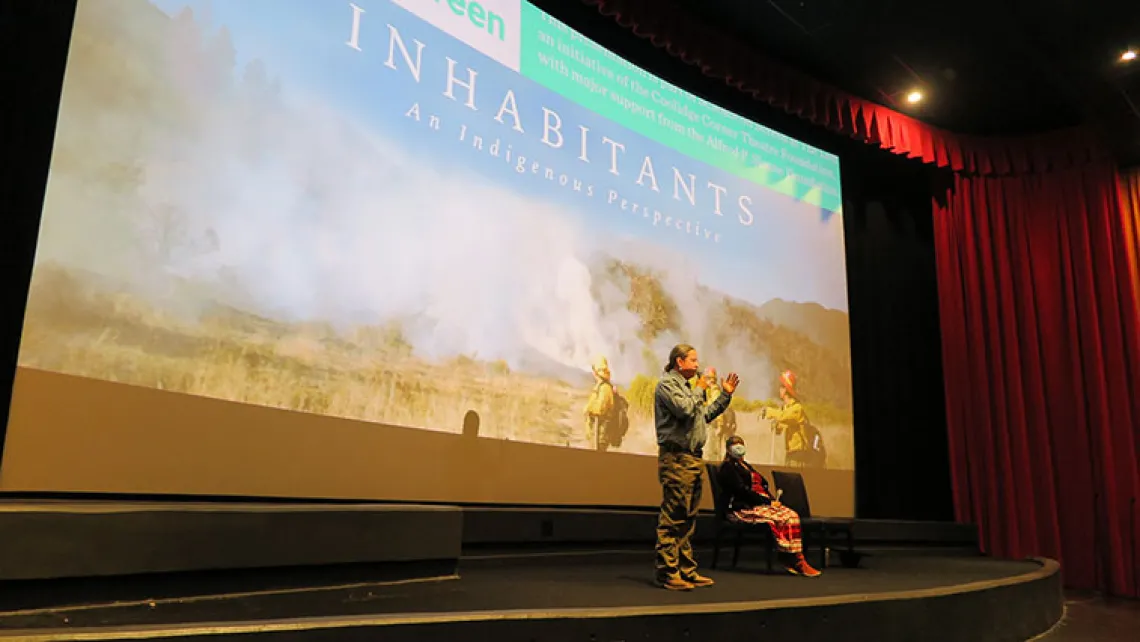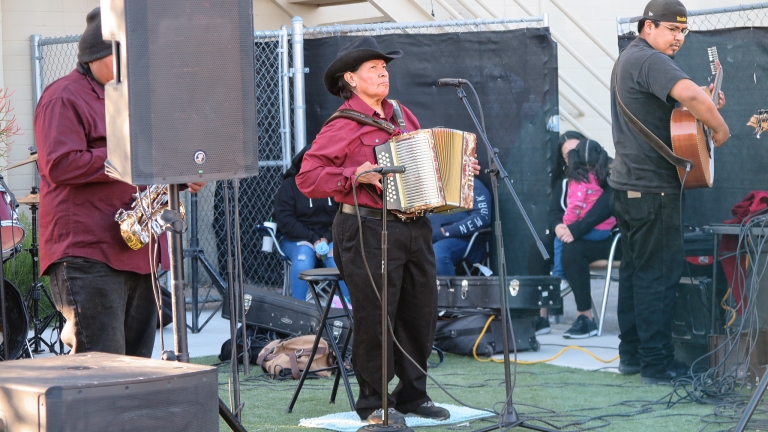Native Voices in Film: a Co-designed Presentation
Film screenings and festivities in celebration of Native American Heritage Month

On November 20, 2022, the Indigenous Resilience Center (IRes), The University of Arizona Native American Law Students Association (NALSA), and The Loft Cinema's Indigenous Film Committee hosted Native Voices in Film — a free event in celebration of Native American Heritage Month.
The event screened the classic animated film, “Finding Nemo” (in Navajo), and the documentary, “Inhabitants: An Indigenous Perspective,” with a Q&A with Dr. Michael Kotutwa Johnson afterward.
“Finding Nemo” kicked off the event to a joyful audience of all ages. And it was followed by a community gathering in The Loft’s patio featuring plenty of food, music, dancing and celebration.
Vendors adorned Tucson’s arthouse theater’s backyard, showcasing books, handcrafted goods, jewelry, art, food and many more products.
A crowd-pleasing performance by the band “Gertie and the T.O. Boyz Play,” smoothly concluded the outdoors festivities with most attendees dancing to their original music and several popular cover songs. The band’s danceable genre of waila — music developed by the Tohono O’odham people — was the perfect ending to a vibrant afternoon.

“Inhabitants: An Indigenous Perspective,” is a documentary that tackles the pressing challenge of a changing climate and was the final screening of Native Voices in Film.
The documentary was followed by a Q&A with Dr. Michael Kotutwa Johnson — a member of the Hopi Tribe in Northern Arizona — as part of the Coolidge Corner Theatre Science on Screen® series.
Dr. Johnson, featured in the documentary, is a University of Arizona faculty member and Assistance Specialist at the School of Natural Resources and the Environment. His primary work is with the Indigenous Resilience Center.
The mission of IRes is expressed as “Centering Indigenous ways of knowing into co-designed environmental solutions and training the next generation of community leaders.” For more information about IRes and how to show support, visit resilience.arizona.edu.

